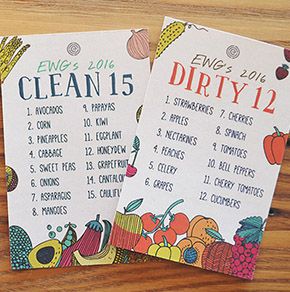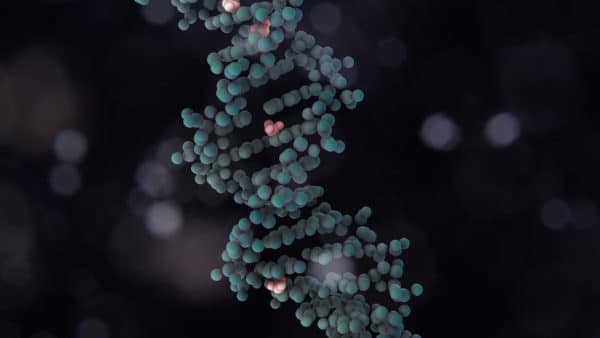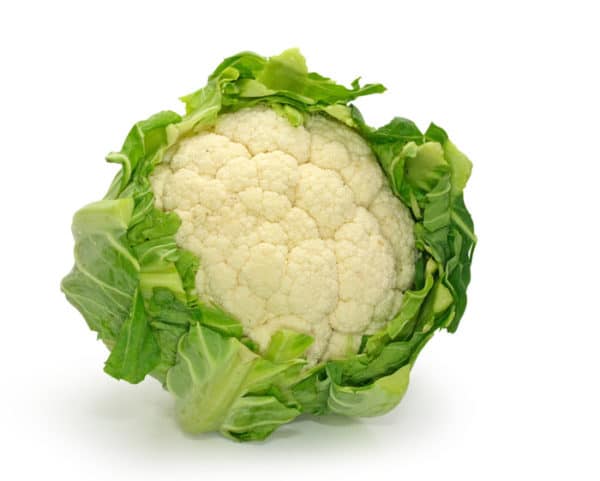
Everywhere you go these days you hear people talking about the benefits of eating organic. I am sometimes surprised, however, by what people think that truly means.
I was at a restaurant the other day in an unfamiliar town. When I asked if they served organic food they said they did. Then they proceeded to tell me about their vegetarian dishes!
Many people tell me they like organic because they think it’s local. That is actually often not the case. Organic does not necessarily mean locally grown. And locally grown does not necessarily mean organic.
Some people don’t understand the true benefits of eating as close to 100% organic as possible. I often get asked about how important that is. I truly believe that organic foods offer tremendous benefits to your health. So I thought I’d use this opportunity to tell you why I believe this to be true.
To me, buying organic food really comes down to 3 fairly straight-forward benefits, so I’ll discuss each of those.
But first, let me review with you what the actual definition of “organic” really is.
What does “organic” really mean on your food label?
Foods that can be labeled “organic” include fruits, vegetables, grains, dairy products, eggs, poultry, seafood, and meat.
In 1990, Congress passed the Organic Foods and Production Act. It was the first major step taken to aid and further promote the emerging organic food sector.
This legislation was then followed up by the more recent 2002 USDA National Organic Program, which implemented the standards and regulations for any farm or handling operation seeking to sell a food product under the USDA organic label.
If you go onto the U.S. Department of Agriculture (USDA) website, you’ll see that “organic” doesn’t mean the food HAS TO have a better taste. It also doesn’t mean foods have to have more nutritional content. It also doesn’t mean foods have to have been locally grown. However, it is true that organic foods may, in fact, be all of these things as a side effect of how they are produced.
“Organic,” instead, is a labeling term that means a food has been grown and processed following strict government standards relating to specific agricultural practices. These practices are very focused on sustainability (encouraging soil and water conservation; animal raising practices), reducing pollution, and ensuring biodiversity.
So what does this mean specifically about the foods you purchase?
Organic Produce
A farmer growing organic produce wouldn’t use “conventional” methods to control weeds, control pests, and fertilize.
The farmer might use natural fertilizers rather than chemical (synthetic) fertilizers or sewer sludge.
This farmer might use crop rotation and mulch to manage weeds rather than use toxic weed-killing chemicals.
No genetic engineering can be used. No chemical pest control would be used. Organic produce must be grown on soil that meets the “no chemical” standards for at least three years prior to harvest, although many will assert they are “in transition” to organic, which may still be a draw to many.
 Organic Meat and Poultry
Organic Meat and Poultry
Animals must be raised in specific living conditions that accommodate their natural behaviors. Chickens must be allowed to peck for bugs. Cattle must be allowed to graze outdoors.
Animals cannot be given any antibiotics or artificial growth hormones. Animals must be fed organic food themselves (they cannot be fed GMOs, for example).
Organic food products cannot have been irradiated. Nor can most food additives have been added during processing.
I’ll talk briefly about manufacturer labeling at the end…but bottom line is to look for USDA certified Organic if you really want organic.
The biodiversity of organic agricultural practices
Before I move on to my 3 reasons for choosing organic foods over conventionally grown foods, let me also just explain the point I made earlier that USDA standards for organic are based on ensuring biodiversity.
What does this mean?
It is an important point when looking into the future. Most conventional farms grow product that is extremely hybridized to produce the largest, most attractive specimens. This also means they tend to grow a few things over and over again.
Organic farms, however, grow an assortment of food using crop rotation as a means to improve soil fertility and to reduce the need for pesticides. Organic farms grow more indigenous strains of produce that are likely to be more tolerant of regional conditions, such as pests or droughts. Growing with a goal of biodiversity improves the soil while providing more diversity to ensure survival of a greater number of specimens. It is kind of a risk management strategy. If a drought or pest wipes out a particular variation of crop, you might have dozens or hundreds more that aren’t affected.
Unfortunately, over the years with conventional farming, we have fewer crop variations to rely on. Organic farming can slowly change this over time.
My 3 reasons for buying 100% organic
My 3 main reasons to avoid conventionally-farmed or -raised food products are:
- Reduced toxin load (chemicals, hormones, antibiotics, and GMOs)
- Organic food is more nutritious (and often tastes better)
- It is better for the earth and our future generations (sustainable, ensures diversity, preserves soil and water quality, reduces pollution – and so much more)
Reason #1 – Reduce toxin load 
This seems like such a no-brainer to me. You would want your food to be free of chemicals, hormones, antibiotics and GMOs!
Antibiotics:
Did you know that scientists estimate that roughly 70% of the antibiotics produced in the U.S. each year are fed to animals? This is done even when the animals aren’t sick! Not only should we not want antibiotics in our food, but we’re creating a huge antibiotic-resistance problem by using them, rendering many antibiotics useless over time.
Pesticides:
It is estimated that 90% of the pesticides that we consume in the U.S. are found in the fat and tissue of our meat and dairy food purchases. When you bite into that conventionally raised beef, think about its food chain. It likely ate animal parts, fish meal, grains, and by-products that have all been exposed to a wide variety of chemicals. Now all of those toxins are stored in that cattle’s fat – just for you.
There are long-term studies tracking the effects of specific pesticides known as organophosphates. These pesticides have been shown to damage the human nervous system, and could be especially impactful to the brain and cognitive development of unborn or young children.
As researchers discovered more and more negative health concerns about organophosphates, manufacturers turned to newer and supposedly safer insecticides, such as neonicotinoids. Now a decade of research has found that neonicotinoids – used widely on fruits and vegetables – are highly toxic to pollinator species, including our beloved honey bees. Neonicotinoids may contribute to the issue of colony collapse.
Sex hormones and growth hormones:
These hormones are routinely given to cattle to artificially increase their milk production or their size for meat production. Growth hormones, such as rBGH and rBST, that are found in conventionally raised cow milk, may be linked to early onset of puberty, increased risk for cancer, and a variety of other health issues. These hormones are banned in Europe and Canada. What do they know that we can’t seem to see? Manufacturers will say they adhere to “maximum residue limits” in our food. I’m sorry, for my family the maximum is not eating them!
GMOs:
Genetic engineering alters crops to make them pest and weather resistant. This means the plant actually has pesticides inside of it that kills or deters pests and withstands certain weather conditions better. This also means it saves the farmer the cost of having to spray pesticides on the plants. Ummmm, to me that makes the plants pretty toxic to people as well! GMOs are also used to make produce that is tolerant of poisonous herbicides. This allows conventional farmers to spray weed-killer directly on the plant without killing the plant. Yuck.
GMO corn produces its own insecticide so that farmers don’t have to spray it. How does it kill off invading insects? It works by destroying the digestive lining of the insects!
I just won’t eat it, and you shouldn’t, either. Food doesn’t have to be labeled that it is GMO. So the only way to NOT eat GMO for sure is to buy organic.
Restaurants are still very tough to decipher regarding their use of GMOs. I travel a lot, so I make sure to ask a lot of questions when I dine out. Here are some restaurant tips from a prior article I put together to avoid GMOs.

They also have articles discussing why you should be concerned about GMOs as well.
The Environmental Working Group lists the top GMO foods as: Soy, corn – that includes corn syrup and oil, canola, cotton, sugar beets – which includes sugar that is made from these beets, alfalfa, zucchini, and papaya.
Another good site to learn more about GMOs is http://responsibletechnology.org/gmo-education/faqs/.
Reason #2 – Organic food is more nutritious
Again, nutrition is not a requirement for a farmer to get organically certified. It is a by-product, however, of organic agricultural processes.
For produce, the soil is managed and nourished which will result in foods having far more nutrients. Nutrients include additional minerals, vitamins, enzymes, and micronutrients. There have been recent reviews, one done by the British Journal of Nutrition, that concluded that organic crops contained higher concentrations of antioxidants than conventionally grown foods. Other studies have found that organic dairy and meat contain about 50% more omega-3-fatty acids as a result of the animals foraging on natural grasses.
Based on the research I have read, I truly believe that the nutrients found in organic foods are greater than conventionally farmed foods. This includes both produce and meat. A lot of my belief outside of the actual science comes from just reflecting on the food-chain of the things you eat! What your kale that is in your smoothie is a result of what it is absorbing through its roots! Simple.
For many foods, I personally believe the taste is better when purchasing organic.
Since we’re talking about taste, organic foods also restrict the use of food additives. Organic foods can’t contain fortifying agents, preservatives, or artificial colorings and flavorings. They also can’t contain monosodium glutamate and artificial sweeteners. So purchasing organic means you won’t be getting all of that.
Note that because you don’t get preservatives, organic food may not have as long a shelf life, but I think that is an excellent trade-off in my kitchen!
Reason #3 – It is better for the earth and our future generations – sustainable, ensuring diversity, soil and water quality, pollution – and the health of vital organisms such as bees)
To me, future generations are depending on our making better choices – and our demanding our 
Organic farming practices are specifically designed to reduce pollution, and conserve water and soil quality. They focus on sustainable agricultural practices in harmony with nature. Removing GMOs and toxins from farming helps preserve surrounding ecosystems. No more poisoning honey bees, insects, and soil organisms that all play an important role in our ecology.
Pesticides are very pervasive. They remain in the environment long after the crop is harvested. Toxins poison our water supplies. Water quality surveys have concluded that pollution from agriculture is one of the largest factors affecting the quality of lakes and rivers in the U.S.
Organic farming policies do not permit the use of any toxic chemicals that will pollute waterways or soil.
Crop rotation and other organic practices reduce the need for pesticides and improve soil fertility. They also help ensure the genetic diversity of our agricultural crops.
Along with making the environment less toxic, we are making our bodies less toxic and improving our family’s health when we choose to purchase organic food.
My final thoughts on the benefits of organic food
Many of my patients will tell me that they purchase “specific” organic foods, but not others, due to the cost. Yes, organic farming is more expensive, as it relies heavily on labor versus just nuking our foods with toxins.
I always come back to the question, “but what is the price of your health?” To me, the price for my organic grocery bill is worth the benefits to my family’s health. Also, it means supporting and making a statement to my grocery store/government that I want fewer chemicals in my food!
If cost is a particular issue for you, you might look to see if there is a community-focused agriculture group in your vicinity, or even a local organic farm. Some of these are co-ops that allow you to share the cost or labor in order to get your share of organically grown produce at a reduced cost.
Labeling:
I did mention labeling earlier. This is because there are subtle layers in this process. The USDA Organic Labeling and Marketing Fact Sheet requires the following: There is “100% organic,” but also the concept of just “organic” on labeling. Just seeing organic – without the 100% – can mean that up to 5% of the food is not organic. There is also terminology around, “made with organic ingredients”. This means that at least 70% of the food item is organic. You may see this in cereal and other packaged foods. I try to purchase 100% organic, but always at least look for the USDA-certified label, which means it is at least 95% organic.
 Local farms:
Local farms:
The one other comment I want to end with is regarding purchasing from local farms.
The organic label does not require a farm be local. Nor does a local farm necessarily follow organic agricultural practices. So you should get to know your farmer and ask.
There are likely many small farms near you that practice organic farming but who aren’t certified organic. The reason for that can be that the farm can’t afford to pay the certification fee. Another reason is that they may be in the process of ramping up to being a full-fledged organic operation.
Some farmers who practice sustainable agriculture are even more strict than those who have earned the USDA Organic label.
For example, under the National Organic Program, there is a National List of Allowed and Prohibited Substances, which certain parties within the organic food sector have advocated for, due to the difficulty of growing organic produce on a large scale without the use of pesticides, herbicides, and fungicides.
The following are some of the chemicals allowable by USDA Organic standards to be used in organic farming operations:
- Isopropanol
- Calcium hypochlorite
- Chlorine dioxide
- Sodium hypochlorite
- Copper sulfate
- Hydrogen peroxide
Organic and sustainable agriculture are both similar in principle in terms of practicing agriculture that takes into account natural biological processes in order to reduce off-farm chemical inputs. However, as evidenced by the above list, organic agriculture can still use certain chemicals, and sustainable agriculture claims are unenforceable because no official regulation agency exists to monitor those producer’s claims.
Biodynamics is another holistic, ecological, and ethical approach to farming, gardening, food, and nutrition. I encourage you to learn more about these farming practices as well.
I love local produce as it is always so fresh. When I go to a farmer’s market I love to talk to them. Ask them how they grow their food and what they believe in. Don’t automatically discount them as an option if they don’t have their certification as yet.
In my Clinical Mastery of the Digestive System practitioner training course, we discuss the importance of organic produce for the health of the digestive system. If you want to learn more about this to share with your clients, I encourage you to include this training in your educational background. It’s the Digestion Module in our full Nutritional Endocrinology Practitioner Training program.
COMMENTS? WHAT ARE YOUR THOUGHTS ON PURCHASING 100% ORGANIC?
Share this:

Are you feeling stuck?
Do you feel as if something is missing from your practice that's keeping you from delivering breakthrough outcomes for your clients?.
Recent Posts
Our Programs
Nutritional Endocrinology Practitioner Training (NEPT)
The Mastery and Certification tier is our flagship program and provides everything you need to feel confident as a practitioner who knows how to get results that lead to healthy and happy clients.
Functional Assessment Mastery
Explore the relationships between the most important hormones and their relationship with nutrition.
Functional Nutrition Mastery
Learn how to support your clients to eat and supplement in a way that reduces and eliminates chronic symptoms.
Medical Disclaimer: The information on this website is not intended to replace a one-on-one relationship with a qualified health care professional and is not intended as medical advice. It is intended as a sharing of knowledge and information from the research and experience of Dr. Ritamarie Loscalzo, drritamarie.com, and the experts who have contributed. We encourage you to make your own health care decisions based upon your research and in partnership with a qualified health care professional.
Disclosure: Sometimes (but not always), when I share resources in my programs, newsletter, and on my website, I'm using an affiliate link, which means I do make money if you buy. My credibility is extremely important to me; therefore, I only endorse the products, services, and people I believe in. DrRitamarie.com is independently owned and the opinions expressed here are my own.
Click here to see our Privacy Policy.






 Local farms:
Local farms:







